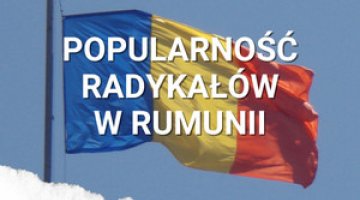Analyses
Romania: President Klaus Iohannis is re-elected

On 24 November 2019, Romania held the runoff of the presidential election which was won by the incumbent President Klaus Iohannis, who is linked with the centre-right National-Liberal Party (PNL). He has received 65.88% of the vote (with 99.67% of the votes counted). His counter-candidate Viorica Dăncilă, former Prime Minister from the Social Democratic Party (PSD), won 34.12% of the vote. Voter turnout was 54.46%.
Commentary
- The result of slightly more than 34% of votes cast for Dăncilă is an unprecedentedly low result for the Social Democratic Party which has played a leading role in Romanian politics since 1989. Until recently, the level of support for candidates representing this party in presidential elections has never been below 45% (in the second round). The recent result is a consequence of a deep crisis within the PSD. In parliamentary elections held back in December 2016, the Social Democratic Party won almost 50% of the votes. At present, however, according to polls, the level of support for the party is a mere 20–25%. Society perceives the PSD as an organisation riddled with corruption. From 2017, Liviu Dragnea, the party’s long-time leader, was pushing through controversial reforms of the judiciary and the prosecutor’s office but in May 2019 he was sentenced to three and a half years in prison for abuse of office. Dăncilă’s takeover as party leader further exacerbated the party’s image. In October 2019, her inept management of the party resulted in the toppling of the social-democratic government. This was followed by a centre-right government coming to power, headed by Ludovic Orban, leader of the PNL which is the Social Democratic Party’s political competitor. The PSD’s failure in the recent presidential election worsens the crisis ongoing within the party. In addition, it will likely be a catalyst for an internal change heralded by Dăncilă’s resignation as the president of the PSD on 26 November. Marcel Ciolacu, the president of the Chamber of Deputies, became the party’s interim leader.
- Re-election for Iohannis solidifies the PNL’s position ahead of parliamentary elections planned for the end of 2020. According to polls, this party enjoys the highest approval rating both in the Chamber of Deputies and in the Senate (around 30%). Regardless of this, the PNL’s situation in the upcoming months will most likely be complicated. The party will come under attack from both the PSD and its immediate competitor on the right wing of the political scene – the Save Romania Union (USR). This latter party, which is ideologically close to the PNL, intends to attempt to win over the same group of voters. At the same time, it is using anti-establishment rhetoric targeted at the PNL, which has been present in Romanian politics since the beginning of the 1990s. The conflict of the right-wing parties may enable the Social Democrats to gain the time they need to re-organise their ranks. Despite its deep crisis, the PSD continues to have major personnel and financial potential alongside its very well-organised and extensive field structures.
- This year’s presidential election was characterised by the unprecedented mobilisation of the Romanian community abroad (it is estimated at 4–5 million individuals residing mainly in Italy, Spain and Germany, and accounts for 20–25% of Romania’s population). Almost every tenth vote out of around 10 million votes cast in the election was cast by a Romanian living abroad. As much as 94% of these votes were in favour of the incumbent president. For representatives of the Romanian community abroad, their participation in the election was an opportunity to manifest their involvement in the country’s political life and to show their dislike of the centre-left government. A major portion of this group is holding the Social Democratic Party, which has ruled or co-ruled the country almost uninterruptedly since 1989, accountable for the large-scale economic migration Romania has been experiencing for over a decade.




